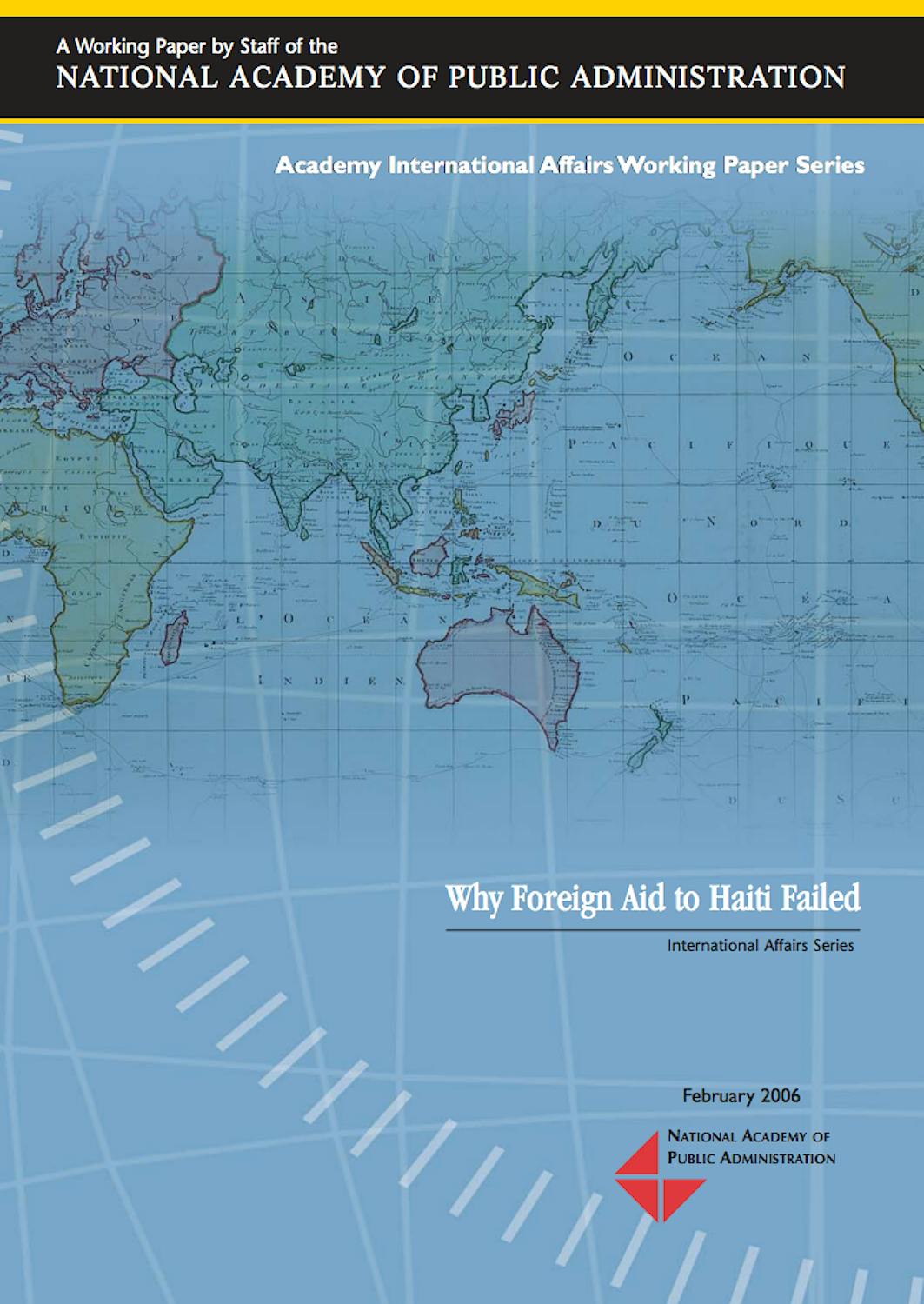
Why Foreign Aid to Haiti Failed
This paper explains why, after consuming billions in foreign aid over three decades, and hundreds of millions specifically for governance and democratization programs, not to mention billions for other programs, Haiti remains politically dysfunctional and impoverished.
Click the button below to view the View Report.
View ReportKey Findings
Researchers assembled mountains of documents covering every aspect of foreign aid to Haiti, as well as lessons learned and best practices in providing assistance to developing, fragile, failed, and post-conflict countries. Numerous drafts of this paper have been shared with experts, policymakers, and practitioners in foreign assistance, generally—and Haiti, specifically—for review. Haiti—an island [shared with the Dominican Republic] is a country of 8 million people about the size of Maryland just 600 miles off the coast of Florida—is an extreme case: it has received billions in foreign assistance, yet persists as one of the poorest and worst governed countries in the world. Haiti is strategically important to the United States because of: location; perpetual state of violence and instability affecting the region; support for drug trafficking; potential as a trading partner; strong ties to a large Haitian-American diaspora; counterbalance to Communist Cuba; and relationship with the Latin American and Caribbean communities.
Recommendations
Haiti, under its Transition Government, has embarked on yet another effort at development—the Interim Cooperative Framework. Given governance failures in Haiti, especially in the past three decades, it appears that Haiti and the donor community have done a lot of things right in this initiative. The Transition Government has been creating appropriate governance policies, processes and reforms, not to mention enacting laws necessary to make the most of foreign assistance. The Haitians have partnered with the donor community to craft a strategy to help Haiti turn around over the next two years. On the donor side, bilaterals and multilaterals are effectively working together and with their Haitian partners. Everything seems to be in place for a successful outcome. Only the upcoming elections—postponed at least four times—will portend Haiti’s future.
